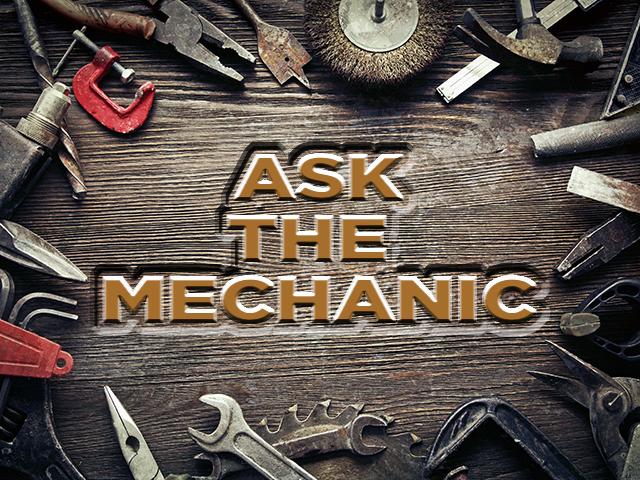Ask the Mechanic
Tachometer Malfunction, Pan Gasket Leak and Short-Running Tractor
DTN/The Progressive Farmer's Ask The Mechanic Columnist Steve Thompson answers readers' mechanical questions. You can read Steve's columns every month in Progressive Farmer's digital edition (click on the "Resources" tab to find the magazine and inside, Steve's Ask The Mechanic columns).
If you have any questions for him, you can contact Steve at: Write Steve Thompson at Ask The Mechanic, 2204 Lakeshore Dr., Suite 415, Birmingham, AL 35209, or email: mechanic@progressivefarmer.com.
Here are Steve's answers to questions recently submitted by readers:
**
READER: I have a John Deere 4600 tractor, and the dash tachometer suddenly stopped working. Do you know if it has its own fuse? Where does it get its power?
STEVE: The tachometer on this tractor gets its feed from the alternator. I bet if you check your alternator, it's no longer charging, which will shut down the tachometer. The voltage in your battery with the engine running will be around 14 volts. If the alternator is charging, the problem is probably in the cluster, which is the complete dash. However, you could have a wiring problem in the wiring harness from the alternator to the cluster.
P[L1] D[0x0] M[300x250] OOP[F] ADUNIT[] T[]
**
LOTS AND LOTS OF PARTS
READER: I have a John Deere 3032E tractor that has a leak from the pan gasket to the block. I have studied this leak for a while, and finally decided to fix it myself. I have worked on a lot of old tractors but not so many newer compact tractors. I thought I could just drop the pan and replace the gasket, but I found out that this tractor is not made that way. I realized I had to remove the front-wheel drive and drive shaft, and then remove the frame that the front-wheel drive is attached to. This includes all of the pieces up front -- radiator, hydraulic oil cooler, battery cables, wiring -- a lot of stuff. Next, the 20 or so cap screws that secure the frame to the oil pan. Then, a basket of oil pan bolts. Finally, don't forget the two long studs that have nuts on them that go through the center casting into the bottom of the oil pan. Is there a better way to fix this leak? Maybe a spray can of front-wheel drive?
STEVE: Yes sir, it is almost like Deere uses the oil pan on this tractor as part of the structural design of this little beast of a compact tractor. You did everything exactly right to fix your oil pan leak. Without the proper stands, it is not a safe fix. I hope you have a big shop to scatter the tractor and all the different-sized metric bolts and nuts.
One tip on this fix: I have found it's a good idea to tighten the bottom two studded nuts first. This allows the back of the oil pan to seal the area around the rear engine oil seal and the oil pan. At least you did not have to spend a lot of money on parts -- one tube of gasket maker will do.
**
TRACTOR ALWAYS DIES
READER: I have a Ford 2000 gas tractor that dies after it runs about 20 minutes. I changed it over to an electronic ignition, and I thought that would solve my problem. However, it still dies after running a while. I have had the carb rebuilt, and that did not help. It seems that changing the carburetor settings doesn't make any difference -- it still dies. Could I have a bad electronic ignition?
STEVE: I feel like you have a bad ignition coil. More than likely your tractor had this problem, and that is why you converted to an electronic ignition. However, you are still having a problem with your coil breaking down from heat. I recommend the coil offered with most electronic ignition kits that I have purchased and installed. When the electronic ignition is teamed up with this electronic ignition coil, the voltage produced will be 40,000 volts. The coil will have internal resistance, so you will not have to worry about a resistor in the coil wire. This coil should be available in the catalog beside the ignition kit you purchased.
**
STEVE'S SAFETY TIP OF THE MONTH:
I know it's easy to throw a chain on the running board of a tractor, but that can pose a problem if it gets between the clutch pedal and the transmission housing. The other day, I fed the cows a roll of hay, and when I got ready to stop the tractor beside the barn, the pedal got hard, and the tractor did not completely stop. I slammed on the brakes and killed the tractor. The chain I was carrying got jammed between the pedal and the transmission housing, not allowing the clutch to release. I guess there is no end to safety hazards around the farm.
**
Write Steve Thompson at Ask The Mechanic, 2204 Lakeshore Dr., Suite 415, Birmingham, AL 35209, or email mechanic@progressivefarmer.com
(c) Copyright 2022 DTN, LLC. All rights reserved.






